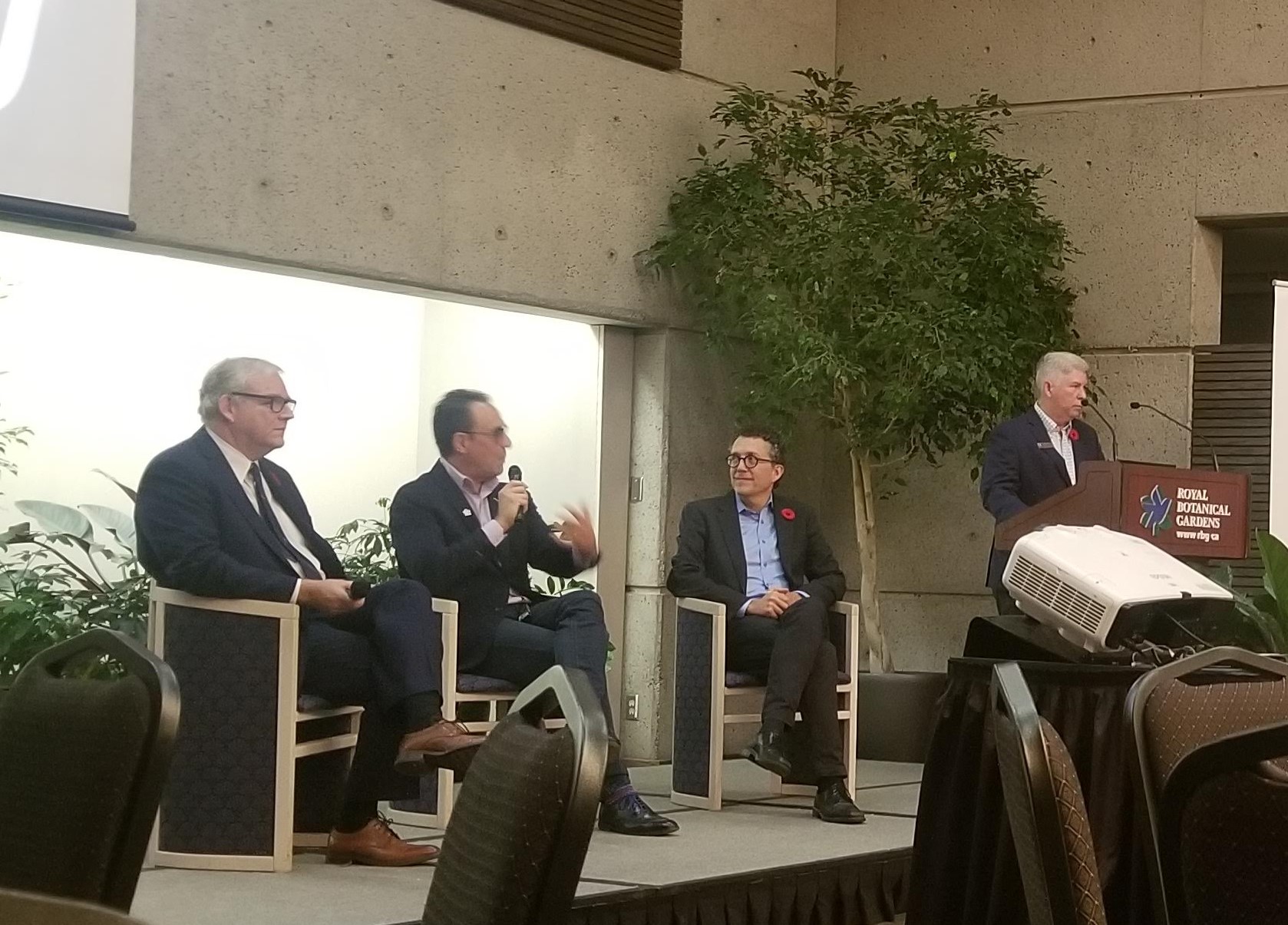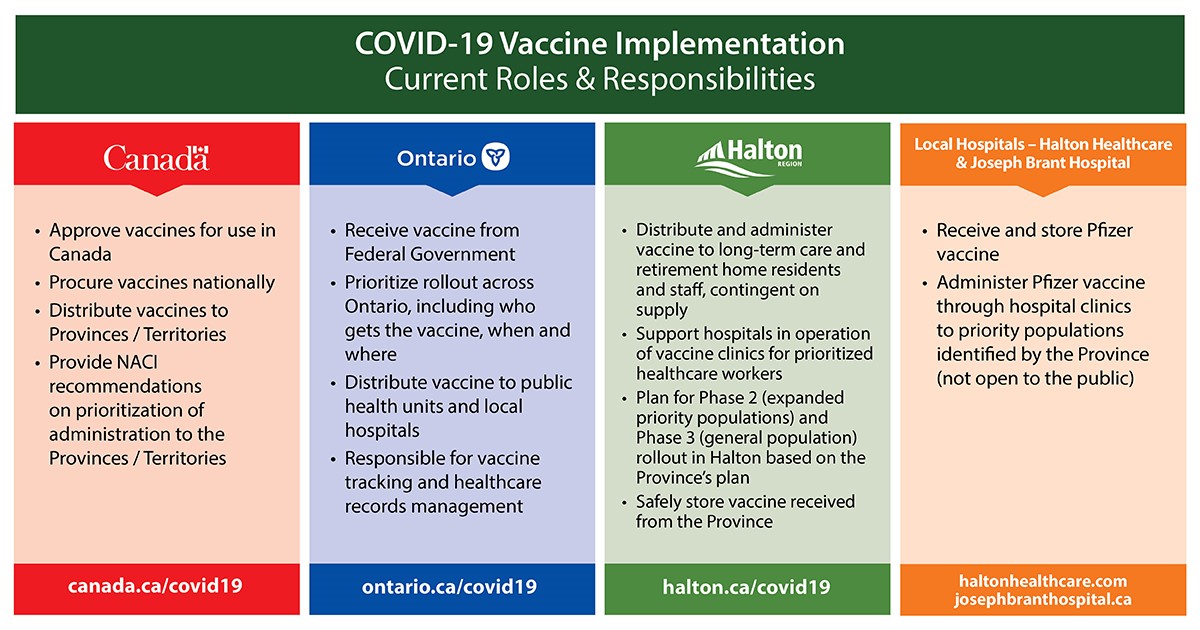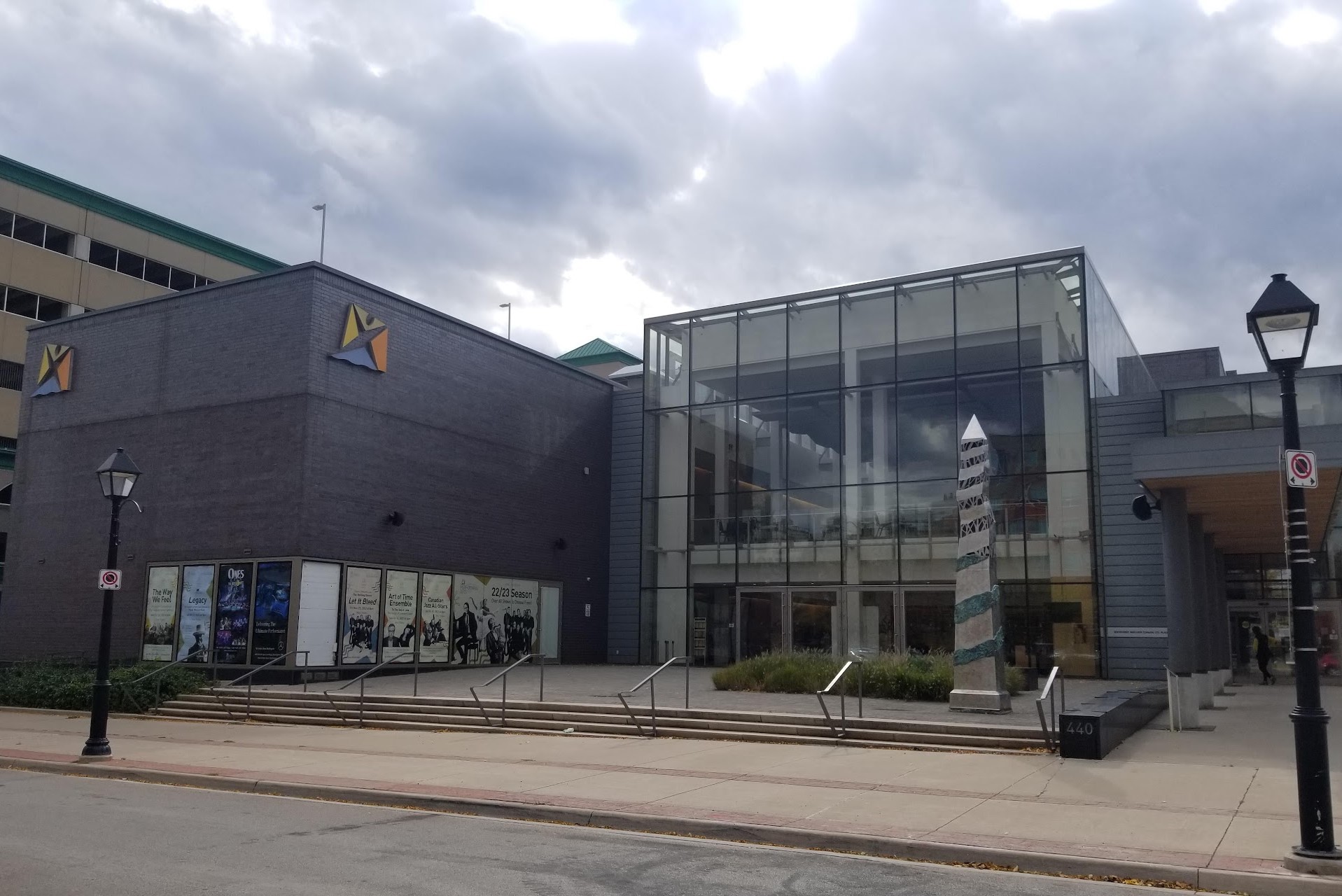The Burlington Chamber of Commerce hosted a Business Before Nine event last week at the Royal Botanical Gardens on the topic “What Could the 2030 Commonwealth Games Mean to Burlington Businesses?” The answer according to the keynote speakers? A lot.
The speakers were Louis Frapporti, a lawyer and the chair of the 2030 Commonwealth Games Initiative, Brian MacPherson, the CEO of Commonwealth Sports Canada, and Antonio Gómez-Palacio, urban planner at DIALOG and partner in the Hamilton 2030 bid for the Commonwealth Games. Over breakfast and coffee, Burlington business people listened to the ambitious plans of the Games bid and potential impact of having the Commonwealth Games in Hamilton and Burlington on local businesses.
While the bid is called “Hamilton 2030,” sites included in the bid range from Stoney Creek and Wellington, of course Hamilton, Waterloo, Kitchener and Cambridge, Burlington, all the way around to Mississauga and Toronto. The particular site in question for Burlington is located at 1200 King Rd., in Aldershot.
Frapporti, MacPherson, and Gómez-Palacio spoke about building plans with the city’s priorities in mind, in order to bring the community what it needs, to build with the future in mind. The site itself has been vacant for a number of years; Councillor Kelvin Galbraith, in whose ward the site sits, was in attendance and noted that he often gets asked about why the land is vacant. “I’m very excited about this opportunity,” Galbraith said at the end of the presentation.
The speakers presented a film featuring local business owners in Australia’s Gold Coast, the host of the 2018 Commonwealth Games. All featured spoke about how their businesses grew as a result of the Games, not just from increased sales during the Games, but increased publicity and opportunities afterwards as a result.
Frapporti spoke about the impact and legacy left by previous Commonwealth Games on their host cities lasting decades, bringing economic boosts to the local economy in the realm of $1.2 to $2.5 billion and creating the equivalent of approximately 20,000 full-time jobs. Supplier contracts alone can bring in around $500 million, with 80% of that going to local businesses.
The Hamilton 2030 team has toured the 1200 King Rd. site, where they would like to build the Athlete’s Village, which they envision as transitioning to housing after the Games; affordable housing would be part of that. Lawson Hunter of Burlington Now Radio noted that the team’s goals seemed ambitious and asked how the development would be completed within the eight years; the team noted that it’s actually closer to seven years now, and that permits would be the “lynchpin” to completing the work. That Hamilton 2030 is keen to work with the city and region to align with their strategic priorities, including housing, sustainability, and walkable communities, may make this goal all the more attainable, particularly as the City of Burlington representatives present seemed equally keen to help in whatever way possible.
A historical link between the Commonwealth Games, Hamilton, and Burlington makes the Hamilton bid even stronger. Hamilton was the location of the first Commonwealth Games, then called the British Empire Games, in 1930. The founder of the Games? Melville Marks Robinson, also known as M.M. or Bobby, Burlington resident, member and later president of the board of Burlington High School, and after whom the then-new M.M. Robinson High School was named upon his retirement. So bringing the Games back home for 2030, the centenary year, seems especially fitting, with the potential economic impact a lovely anniversary gift for the original home of the Games and of its founder.




